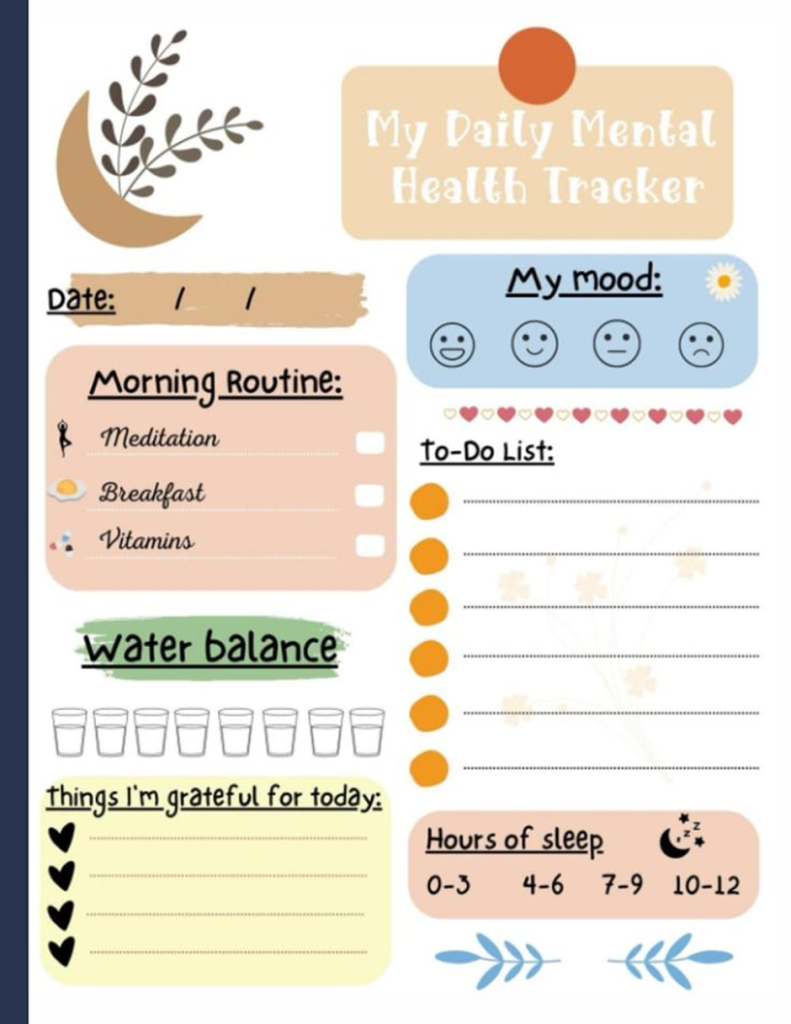Mental clutter piles up fast: tabs in the head, half-finished thoughts, and worry loops that steal attention. This guide shows how to declutter your mind by pruning low-value thoughts and parking tasks so working memory can breathe. The payoff is sharper focus and productivity, steadier mood, and more creative problem-solving.
We will share practical mental clarity tips rooted in evidence, from mindful pauses and single-task blocks to light journaling and device boundaries. The goal is a clear mental space you can return to on busy days, not a perfect blank slate.
How Mental Clutter Impacts Your Daily Life

Constant thought loops and nonstop inputs crowd working memory, so decisions take longer and feel harder. That slowdown shows up as productivity challenges like attention flips and more small mistakes, because multitasking is really rapid task switching.
Overthinking fuels negative thinking and keeps the body keyed up, which worsens mood and creates ongoing stress and focus problems. These effects spill into sleep, patience, and motivation, therefore draining energy which could have been used for meaningful work.
You can protect your daily mental wellness by shrinking inputs in chunks, batching notifications, and choosing single tasks over scattered attention.
Identifying the Sources of Mental Overload
Cluttered focus often comes from three places: digital distractions, unfinished feelings, and too many plates spinning.

Notifications and constant tab switching split attention and amplify mental overload triggers. Old conflicts or worries add emotional stress, which pulls bandwidth from working memory and patience.
Stacked obligations, unclear priorities, and always-on alerts keep the mind in reactive mode. To declutter your thoughts, silence nonessential pings, park worries in a written list for later review, and batch similar tasks during one block. Name the source, apply one small fix, then keep what actually helps.
Practical Techniques for Clearing Your Mind
Cut through mental noise with small moves that work. Use journaling to unload worries or plans onto paper, which supports better mood and thinking.

Make a short to-do list to park tasks so the brain lets go at night. Add quick mental focus exercises like mindful breathing between tasks to reset attention. Finish with light activity such as a brisk walk to lift mood and sharpen cognition. Keep a few daily decluttering tips nearby and use them as fast stress relief methods during busy days.
Author’s Note: Check out our post Declutter Checklist For Stress-Free Living which provides an in-depth look at using decluttering to clear mental fog.
Incorporating Mindfulness and Meditation
Mindfulness builds present moment awareness that calms mental clutter and steadies attention. Consistent mindfulness practice lowers stress and helps the mind react less to daily triggers.
Brief meditation for focus can enhance attention and working memory in everyday life.

A simple mental clarity routine works well: sit quietly, follow the breath, notice sensations, then return to the anchor whenever thoughts pull away.
Building Daily Habits for a Smoother Mental Flow
Busy days run smoother when small routines carry the load. A quick end-of-day reflection locks lessons and sets a daily routine for focus, which research links to better performance through intentional review.
Short breaks reset attention and help improve concentration, especially during repetitive tasks. Prioritize three tasks each morning to keep mental clarity habits tight and reduce decision clutter. Use simple checklists and a breathing pause before context switches as steady mental flow practices. Keep it consistent: same time, same cues, and the mind follows.
Leveraging Physical Decluttering to Boost Mental Clarity
Clearing counters and desktops takes noise out of the room, helping the brain filter less and focus more. Research shows visual clutter competes for attention and drags performance.

Tackle a few hotspots and declutter your home, then set up an organized workspace with a simple inbox for papers and a fixed spot for tools. Fewer items in view reduce distractions and lower stress cues linked to messy environments.
A brief end-of-day reset keeps surfaces clear, supports mental and physical balance, and makes it easier to sit down and get things done tomorrow.
Overcoming Emotional and Psychological Obstacles
Tackle negative self-talk like clutter on the floor. Label the thought, test it against facts, then replace it with a balanced line to support emotional decluttering, a core Cognitive behavioral therapy skill.
Add two reliable stress management tips: slow breathing to settle the body and a brief thought log to spot patterns you can reframe. For overcoming mental blocks, set one small, doable action that fits the day and repeat it after each reframe. With practice, these habits strengthen mental resilience and clear room for focused work.
Author’s Note: Check out our post Decluttering Sentimental Photos for quick tips on creating emotional clarity through organized living.
Measuring Progress and Celebrating Mental Clarity
Small wins deserve a scoreboard. Use a tiny daily log to track mental clarity with notes on attention, mood, and sleep, then watch for steady productivity improvement in tasks finished or deep-work minutes.

A short end-of-day journal helps cement insights and supports mental wellness progress without overcomplicating the routine. Set weekly focus milestones like distraction-free study blocks or smoother task switching, and celebrate consistency to keep motivation high. Evidence shows clear, specific goals improve performance and persistence, so write them down and review them often.
Final Thoughts on Sustaining a Decluttered Mental Space
Consistency keeps clutter out, but flexibility keeps focus fresh. Keep daily anchors like sleep, movement, and mindful pauses, then adjust them as seasons and workloads shift to sustain mental clarity without turning routines into pressure.
Build long-term focus habits you can tweak on busy days, and protect a clear mind lifestyle by trimming digital noise and sticking to one task at a time. Use simple mental wellness tips like brief mindfulness breaks and regular social check-ins to steady attention.
Find what fits your mind, make it your own, and share your best clarity tweaks in the comments below!


